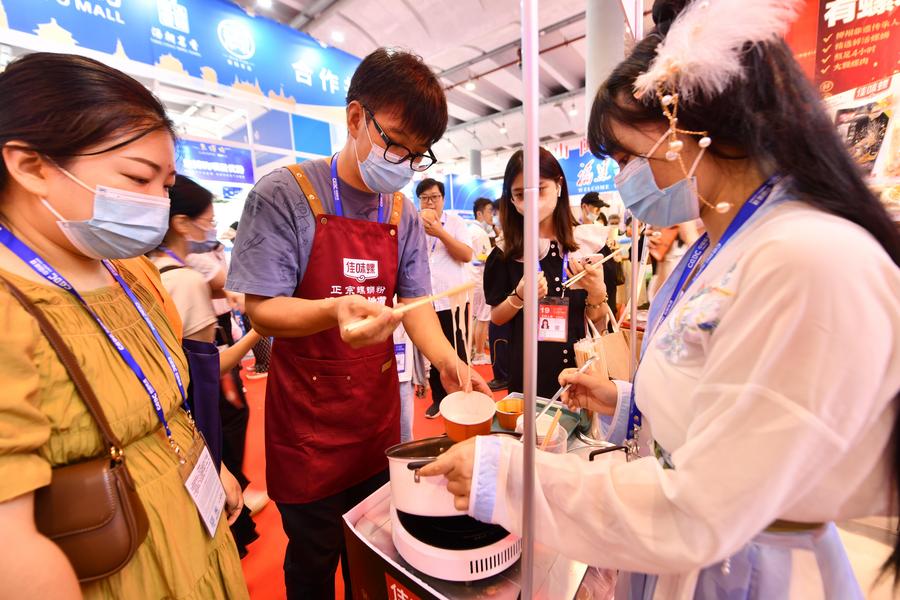
Visitors taste Luosifen rice noodles during the 19th China-ASEAN Expo at Nanning International Convention and Exhibition Center in Nanning, capital of south China's Guangxi Zhuang Autonomous Region, Sept. 16, 2022. (Xinhua/Huang Xiaobang)
NANNING, Jan. 26 (Xinhua) -- Exports of Luosifen, an iconic delicacy known for its pungent smell and long association with the city of Liuzhou, south China's Guangxi Zhuang Autonomous Region, registered soaring growth in 2023, local customs authorities said Friday.
Liuzhou exported more than 3,167 tonnes of Luosifen, with a total value of 87.27 million yuan (about 12.16 million U.S. dollars) in 2023, up 19.4 percent and 28.5 percent year on year, respectively, according to Liuzhou Customs.
Liuzhou, an industrial city best known for steel and automobile manufacturing, has been promoting Luosifen for years.
In recent times, the local customs department has enhanced source management and strengthened research on the legal standards and technical trade barriers which apply in importing countries to help enterprises actively explore international markets, said Wu Chunlan, an official of Liuzhou Customs.
Guangxi Luobawang Brand Management Co., Ltd. is one of the main exporters of these pungent-smelling rice noodles. Since Jan. 1, the value of the company's noodle exports has reached nearly 1 million U.S. dollars, and the noodles have been sold primarily to regions such as North America, Oceania, and Europe.
"Luosifen noodles are gaining more recognition among overseas consumers," said Ou Haoxuan, general manager of the overseas business department of the company.
Last year, the total number of enterprises in Liuzhou with Luosifen export qualifications grew to 59.
Luosifen, or river snail rice noodles, is a signature street food in Liuzhou. It features rice vermicelli soaked in a spicy broth flavored by river snails and is topped with ingredients such as pickled bamboo shoots, string beans, peanuts and fried tofu skin.
This specialty, which is on the national intangible cultural heritage list, has become one of China's most sought-after dishes since it was featured in the hit documentary "A Bite of China" in 2012.




 A single purchase
A single purchase









